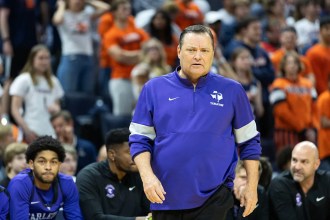In recent developments within the Women’s National Basketball Association (WNBA), Commissioner Cathy Engelbert has publicly acknowledged the need to rebuild relationships with players following criticism from Minnesota Lynx star Napheesa Collier. This discourse highlights ongoing tensions within the league, reflecting deeper issues related to player satisfaction and league governance. Engelbert’s remarks come at a pivotal moment as the WNBA moves towards new collective bargaining agreements and evaluates its officiating standards.
### Rebuilding Trust
Engelbert expressed her disheartenment upon learning that some players feel unvalued and unheard by the league. Her commitment to improving communication and relationships is evident as she declared, “If the players in the ‘W’ don’t feel appreciated and valued from the league, we have to do better, and I have to do better.” This statement signals a recognition of player feedback, suggesting a willingness to address grievances.
Engelbert’s comments come in the wake of Collier’s assertion that the WNBA has “the worst leadership in the world.” Such strong language indicates a growing frustration among players, signaling a potential rift between the league’s administration and those on the court. The commissioner’s outreach to Collier — planning a direct conversation — could serve as a foundational step in mending these relationships.
### Upcoming Collective Bargaining Agreement (CBA)
A major focus for Engelbert and the league involves negotiating a new collective bargaining agreement with the players’ union, with scheduled meetings to discuss terms next week. Engelbert expressed optimism about reaching a deal that will adequately address players’ financial concerns. “We want to significantly increase their salary and benefits,” she stated, emphasizing the shared goal of supporting the league’s financial health while advocating for improved player compensation.
Engelbert acknowledged that previous negotiations included extensions beyond set deadlines, signaling flexibility in working towards a satisfactory agreement for both parties. The need for equitable salaries remains a pressing issue, especially as the league continues to experience unprecedented growth and popularity.
### Issues with Officiating
One of the pressing matters Engelbert highlighted includes concerns over officiating standards. She announced the formation of a “state of the game” committee, which will comprise players, coaches, and general managers to tackle these issues. Engelbert recognized a disconnect between what players and coaches expect from officiating and how games have been officiated. “We have heard loud and clear that we have not lived up to that needed alignment,” she remarked.
Indeed, establishing a better connection between players’ expectations and the realities of game officiating is essential for maintaining the integrity of the league. Engelbert underlined the need to calibrate standards for what constitutes legal versus illegal physical play, with player safety and competitive excitement at the forefront of these discussions.
### Commitment to Growth
Engelbert’s tenure, which began in 2019, has included significant milestones, such as plans for expansion teams and securing a new media rights deal worth over $2.2 billion, supporting the league’s financial stability and future growth. Additionally, the initiation of a full charter flight program for players this season is a testament to Engelbert’s commitment to enhance player experiences, addressing concerns over safety and travel efficiency.
Despite the challenges ahead, Engelbert remains steadfast in her role, denying rumors of stepping down after the CBA is finalized. Emphasizing her tenacity and dedication to the role, she stated, “I’ve never been a quitter. I’m entering my 40th year… Never been a quitter.” This attitude reinforces her commitment to continue addressing challenges and driving progress within the league.
### Looking Ahead
While Engelbert’s recent remarks reflect a proactive approach to addressing player concerns and operational issues within the league, the path forward necessitates ongoing dialogue and collaboration among stakeholders. The looming deadline for the new CBA adds pressure to these discussions, as both the league and the players’ union strive to find common ground.
As the WNBA continues its trajectory of growth and increased visibility, fostering an environment where players feel respected, valued, and heard will be critical to its long-term success. The recent criticisms may serve as a catalyst for necessary reforms, enabling Engelbert and the league to align better with the expectations and needs of its players while also enhancing the overall quality of the game.
In conclusion, Cathy Engelbert’s recognition of the need to repair player relationships signifies a crucial moment for the WNBA. While challenges remain, her commitment to addressing these issues alongside players, especially in relation to salaries and officiating standards, could lay the groundwork for a stronger, more collaborative future in women’s basketball. As negotiations unfold and the league enters a new chapter, the success of the WNBA may well hinge on the strength of its relationships—both on and off the court.
Source link









